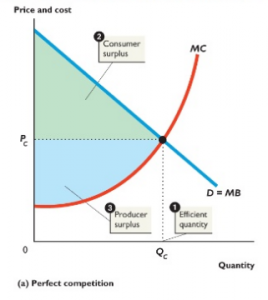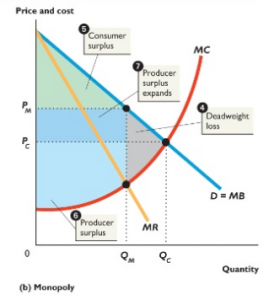Blog #0100: Avoiding a “WALL-E” Situation
When I read about the “Internet of Things”, I viscerally thought of the animated movie, “WALL-E”. For those of you who haven’t seen it (please do— I definitely recommend it), it’s about a robot named WALL-E (short for Waste Allocation Load Lifter Earth-class) that is the last one on Earth. In this film, the human beings have all left Earth after polluting it to the point where it is no longer inhabitable and live in a spaceship instead. Everyone is overly reliant on technology and obese; many see this film largely as a satire on consumerism with a cautionary message.
Perhaps it was WALL-E’s influence on me, but I began considering what it means to be “overly reliant” on technology. Where do we draw the line between optimizing the world’s efficiency and allowing technology to do everything for us? Personally, when I was reading Wasik’s article, “In the Programmable World, All Our Objects Will Act As One”, I thought that some of the implementations were a little excessive. For example, is it really necessary to have a coffee pot that “talks” to the alarm clock? Anyone would agree that having a hot cup of coffee being served up to you automatically would be nice, but it just seems like such an insignificant task that you might as well just do it yourself.
Besides such features of the programmable world being potentially extravagant, I also think they could come with negative effects on the users. The world likes to make fun of us millennials for being married to our phones and disconnecting from reality, and the internet of things might exacerbate this. Wasik includes an image in his article from Wired by Michael Wolf that provides specific examples of how the programmable world might work. One of those is that if a baby is crying, the room will first try to soothe him and if that doesn’t work, it would text the parent at the next-door neighbor’s cocktail party. I found this example at once sort of funny and depressing. To me, it seems ridiculous that a parent would leave his or her young child to go to a cocktail party. But a programmable world would make that more of an accepted option, and I think that this is only a small example of the variety of irresponsibilities and loss of human connection that could stem from the internet of things.
Going back to WALL-E, another theme in the movie is environmental health. If we were to make the majority of our world programmable, that means that many everyday objects would have to be embedded with sensors. How would the production of this technology and the energy required to sustain it affect the Earth? If people were careless with the disposal of old possessions (would embedded objects qualify as e-waste now?), what would happen? Or could “smart” objects actually help the environment? There are several objects that could turn off (for example, lights and heating) when not in use, ultimately conserving energy when it’s not needed. These aren’t questions that I have enough information to answer, but I’d definitely like to discuss this particular facet of the internet of things in seminar next week! 🙂

